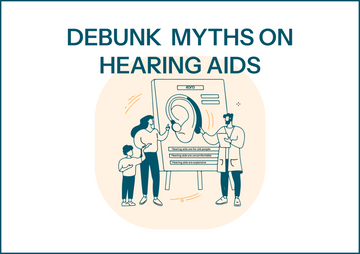Living with hearing loss can feel isolating, but the good news is that support groups for hearing aid users are blossoming across the globe. Whether you wear a traditional hearing aid, a Bluetooth hearing aid, or a rechargeable hearing aid, connecting with others who understand your journey can be transformative. In this blog post, we will explore the benefits of joining support groups, how to find them, and the unique camaraderie that comes with being part of a community.
The Importance of Community for Hearing Aid Users
When it comes to adapting to life with hearing aids, connecting with others who share similar experiences can be invaluable. Here are a few reasons why finding your community is crucial:
Emotional Support
Hearing loss can lead to feelings of frustration, anxiety, or even depression. Support groups provide a safe space to share these feelings, exchange stories, and find comfort in knowing that you aren’t alone in your struggles.
Sharing Experiences and Tips
Support groups are a treasure trove of practical advice. From learning how to properly care for your hearing aids to discovering the best settings for various environments, group members can offer tips that work best based on their own experiences with products like Eara hearing aids.
Access to Resources
Many support groups partner with healthcare professionals and organizations that provide resources specifically for hearing aid users. Members can gain access to webinars, workshops, or information about newer technologies such as Bluetooth hearing aids or rechargeable hearing aids.
Types of Support Groups for Hearing Aid Users
Support groups come in various forms, catering to the specific needs of hearing aid users. Here’s a look at the different types of groups you might consider joining:
In-Person Support Groups
These meet regularly in community centers, libraries, or healthcare facilities, providing face-to-face interaction. Engaging in person can foster strong bonds and immediate connections.
Online Support Groups
In our digital age, many support groups operate online, making them accessible from the comfort of your home. Platforms such as Facebook and specialized forums allow users to connect with individuals worldwide.
Workshops and Seminars
Occasionally, hearing aid manufacturers or health organizations conduct workshops to promote hearing health. These events often include discussions on new technologies such as the latest Bluetooth hearing aids or advancements in rechargeable hearing aids.
How to Find a Support Group
Now that you understand the importance of community and the types available, you're probably wondering how to find the right group for your needs. Here's a step-by-step guide:
1. Research Local Options
Searching online for local support groups is a great start. Websites like Meetup, local health organizations, and community boards can often provide leads on nearby groups.
2. Leverage Social Media
Social media platforms have countless groups dedicated to hearing aid users. Search for keywords like “hearing aid support group” or “Eara community” to find relevant groups.
3. Consult with Hearing Professionals
Local otolaryngologists, audiologists, or hearing aid specialists often have connections or can recommend support group options to their patients. Consulting with them can guide you towards trusted resources.
Creating Your Own Support Group
If you find that there aren’t any existing groups in your area or that no online communities resonate with you, consider starting your own! Here’s how:
1. Choose the Right Platform
If opting for an online group, decide on the right platform. Facebook is popular, but you could also use platforms like Discord or WhatsApp for more private conversations.
2. Set a Schedule
Consistency is key in building a community. Choose a regular time for meet-ups, whether in person or virtually, to encourage participation.
3. Promote Your Group
Use social media, word of mouth, and community bulletin boards to spread the word about your new support group. You could even collaborate with local audiology clinics to attract members.
Benefits of Joining or Creating a Support Group
By becoming part of a support group, you're not just gaining knowledge; you’re investing in your well-being. Here are some profound benefits:
Improved Mental Health
Engaging with others who understand your struggles helps mitigate feelings of isolation and encourages a more positive outlook.
Sharing and Receiving Practical Advice
From recommendations on hearing aids to strategies for effective communication, group members can exchange ideas that could enhance soft skills while managing hearing loss.
Building Lifelong Friendships
Fostering relationships with others who share similar experiences can lead to lasting friendships that extend beyond the support group.
Top Tips for Active Participation
If you're ready to embrace a support group culture, here are some tips for effective participation:
Be Open and Honest
Expressing your thoughts and feelings candidly encourages others to do the same. Vulnerability fosters connection.
Listen Actively
Support groups thrive on mutual exchange. Listening to others’ experiences can educate and provide perspectives you may not have considered.
Offer Your Own Insights
Your experiences and solutions could be the key to someone else’s struggles. Sharing openly can empower others within the community.
Finding Your Tribe: The Power of Support Groups
Support groups for hearing aid users offer an enriching experience for those who may feel lonely in their hearing loss journey. Whether you opt for a local meeting or choose to connect online, the sense of belonging these communities provide can lead to improved mental health, practical knowledge, and cherished friendships.
If you’re currently using a hearing aid, such as Eara or a Bluetooth or rechargeable hearing aid, consider reaching out. You’ll find that there is a world of individuals out there, all ready to share their stories and uplift each other through camaraderie and understanding. Embrace the journey to find your community, and remember that you are never alone!

























